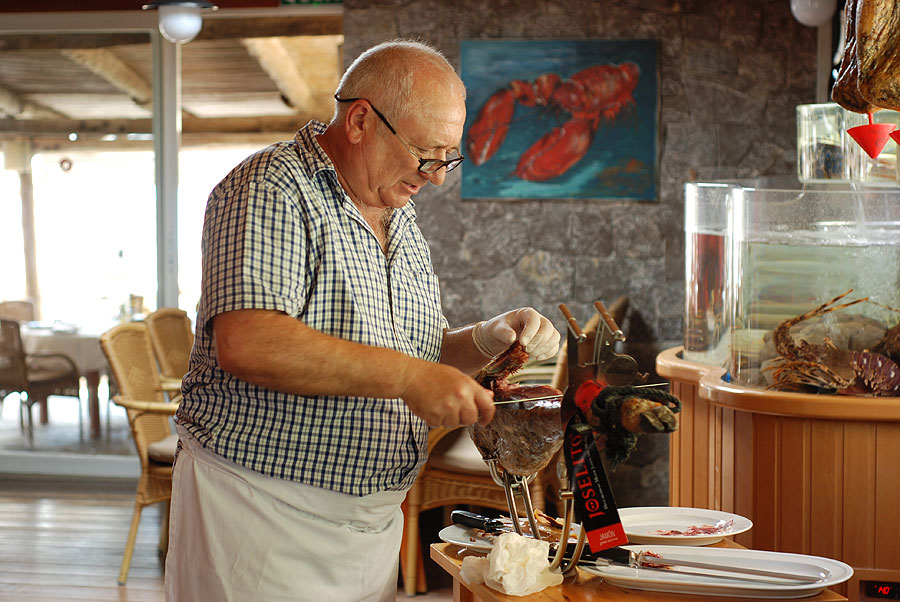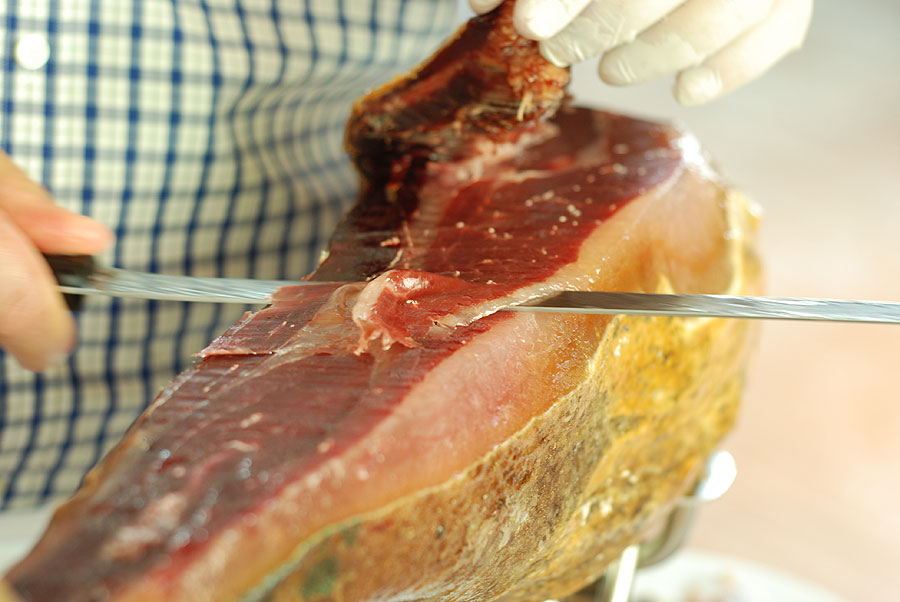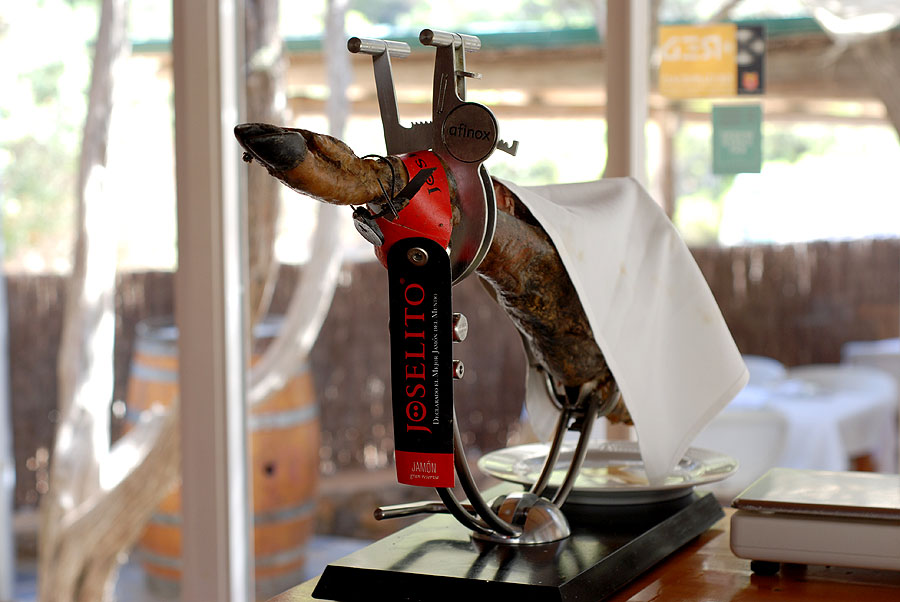
09 Nov Joselito, the Dom Pérignon of ‘Jamón Ibérico’
We say it clearly on our website: “We love Ibicenco produce above all things, but we are not square-minded and also enjoy a delicious Joselito.” By this we mean that at Es Torrent the star produce of our cuisine constitutes the epicenter of our seafood menu, but we don’t renounce the wonders of other places, from Gillardeau oysters and Carril clams, to what some call it “The Dom Pérignon of ‘Jamón Ibérico’ (Iberian ham)”: the Jamón Joselito.
Xico Sala, the founder of Es Torrent, is the restaurant’s official ‘cortador de jamón’ (jamón cutter). Every day, when he comes back from the market, he spends a long time with the ‘jamonero’ knife in his hands, calmly slicing the Joselito Gran Reserva. It is an extraordinary product that our customers appreciate very much and constantly ask for it.
Ferran Adrià says, “Joselito is a unique and perfect jamón, a constant inspiration for all those who love gastronomy”. The most famous wine critic in the world, Robert Parker, adds, “Joselito is the greatest culinary treasure in Spain and one of the most important ones in the world.” The story of Joselito, however, is very long. The company was founded in Guijuelo (Salamanca), in 1868, by Eugenio Gómez, the great-grandfather of the current owner, José Gómez, whom we are proud to have as a customer.
But it is in these last decades when Joselito has become renown worldwide. The secadores (dryers) and cellars are located in Guijuelo, but the pastures are spread across the regions of Salamanca, Extremadura, Andalusia and even Portugal, on the border. More than 170,000 hectares full of cork oaks and holm oaks, which produce tons of acorns. Joselito plants 80,000 trees of these varieties every year on its lands.
The whole process begins when the animals run free through these lands for two years, where they have an average of 3 hectares for each one, where they can grow freely and run in search of water and food. For a few months they feed on grain and grass. During the ‘montanera’ call, from October to March, they eat exclusively acorns. Each animal enjoys at least two ‘montaneras’. When they reach a weight of between 170-190 kilos, they are sacrificed (about 45,000 specimens a year), between January and March. Then the jamones undergo a meticulous salting process, which allows the mineral to penetrate slowly into the meat for about nine days. Then the maturation process begins and lasts for about 36 months in the secadores and natural cellars of Guijuelo, with a humidity between 60 and 80% and a temperature between 14 and 18 degrees celsius.
The result: the best jamón in the world. It is characterized by its fine slices, its soft and unctuous fat, and its meat, with infiltrations of veined and shiny fat. Joselito is present in 90% of the restaurants in the world with two and three Michelin stars and, of course, at Es Torrent.











No Comments